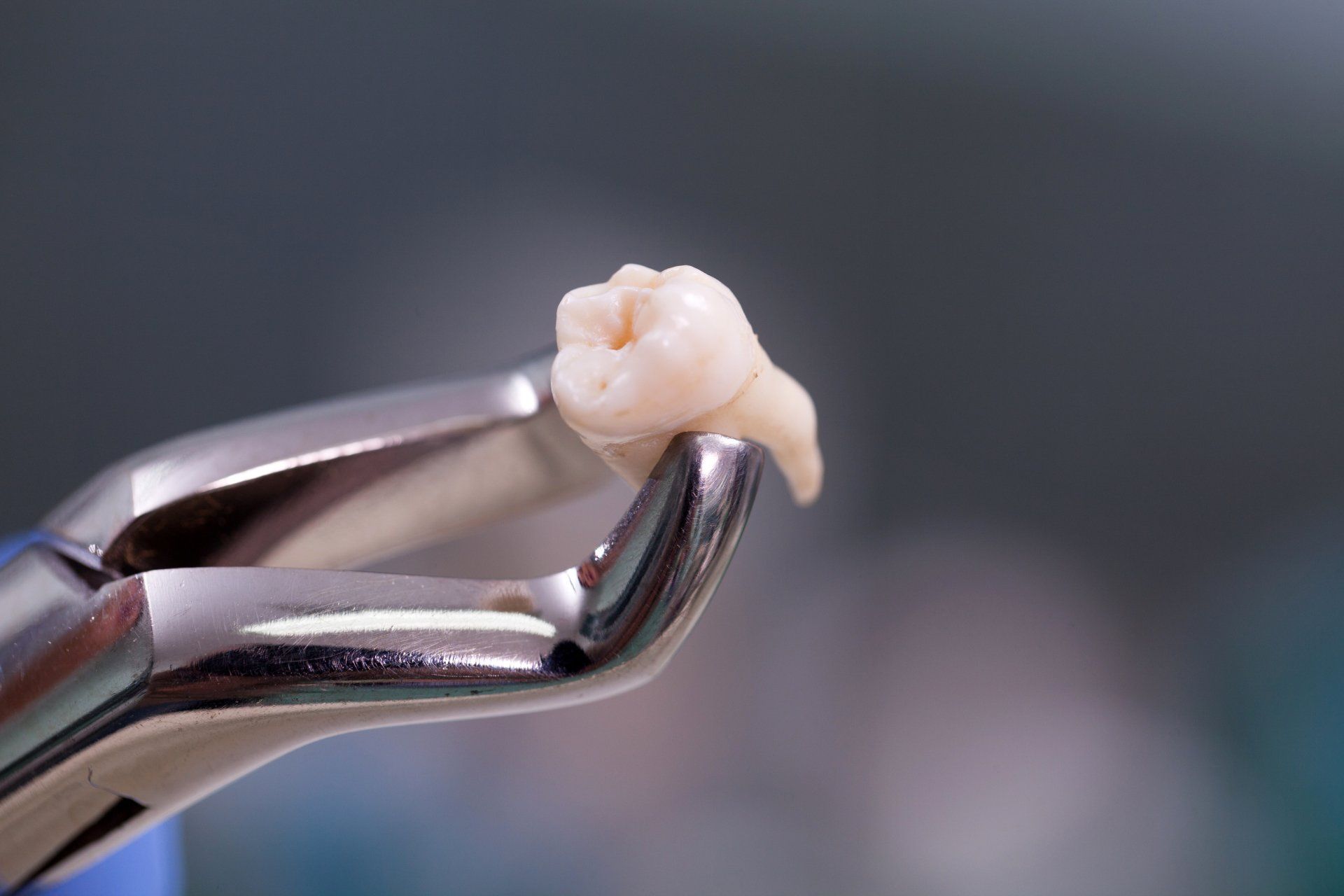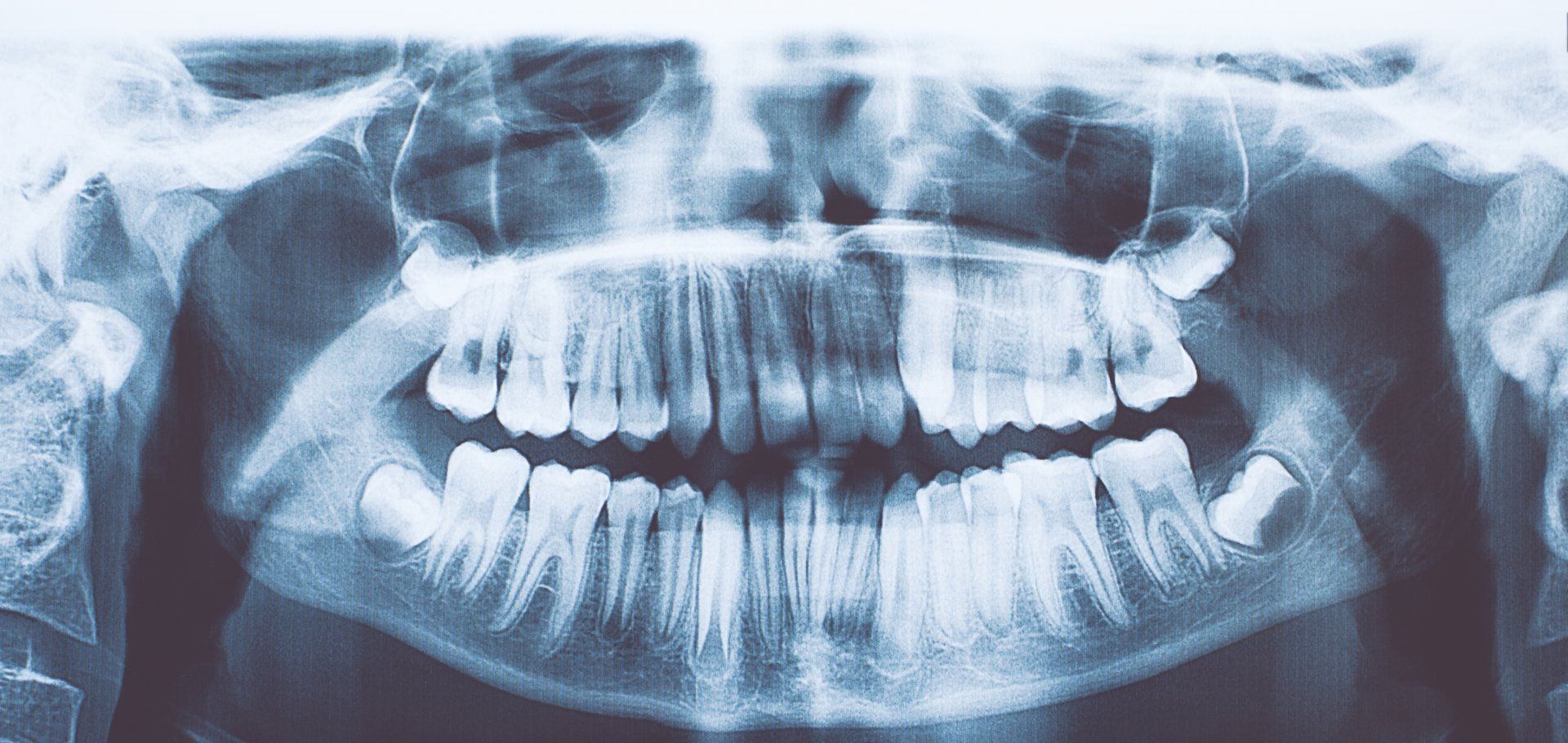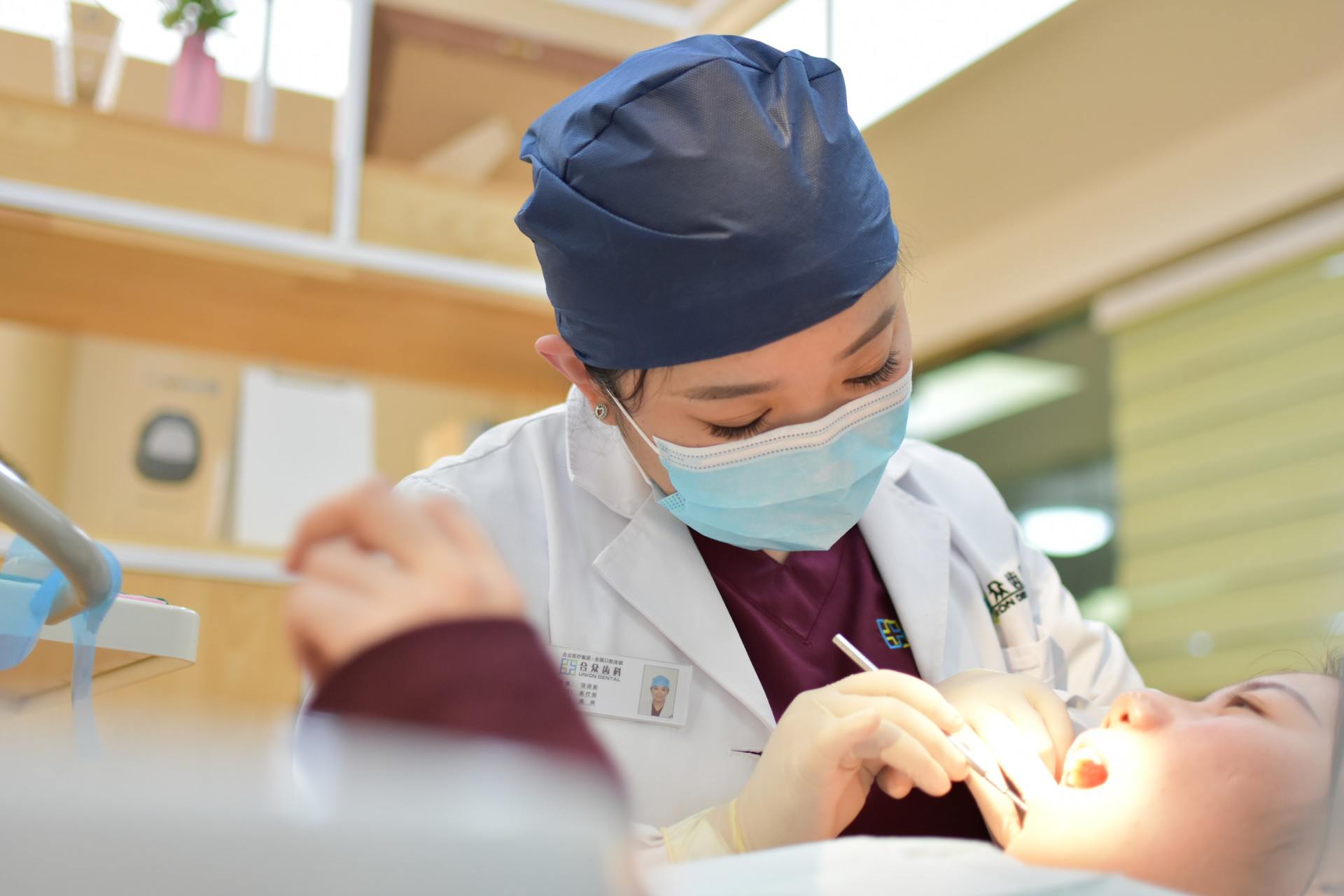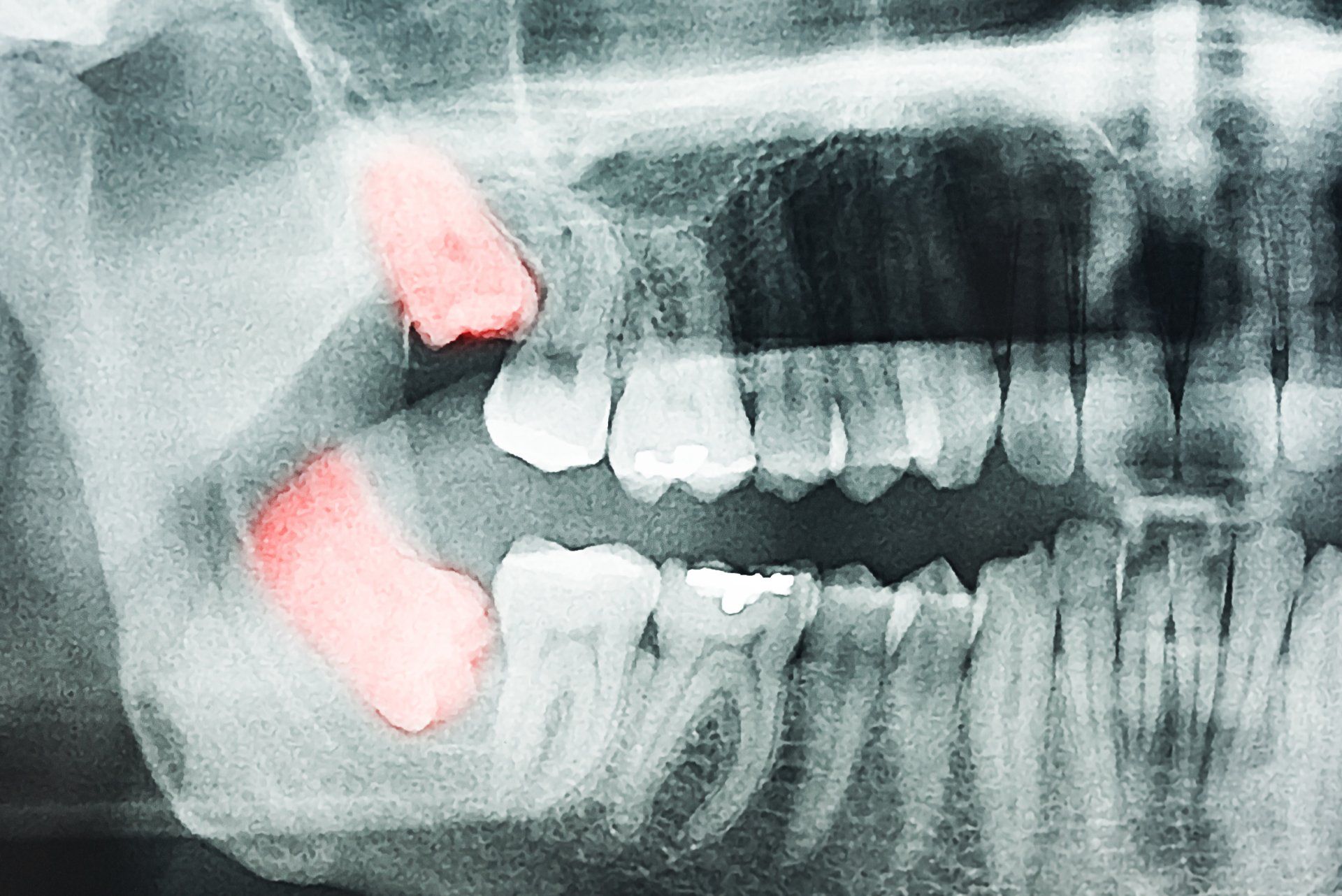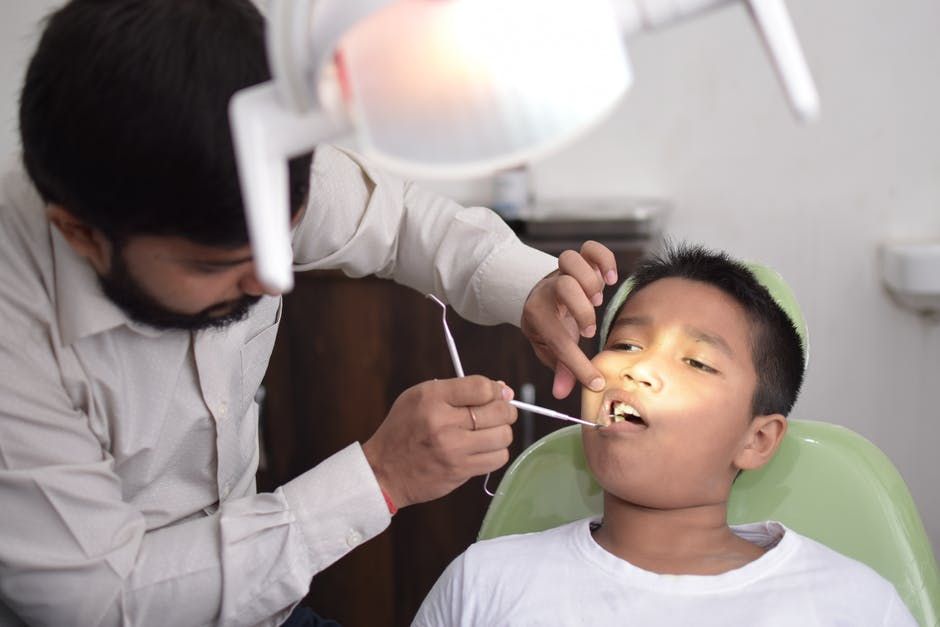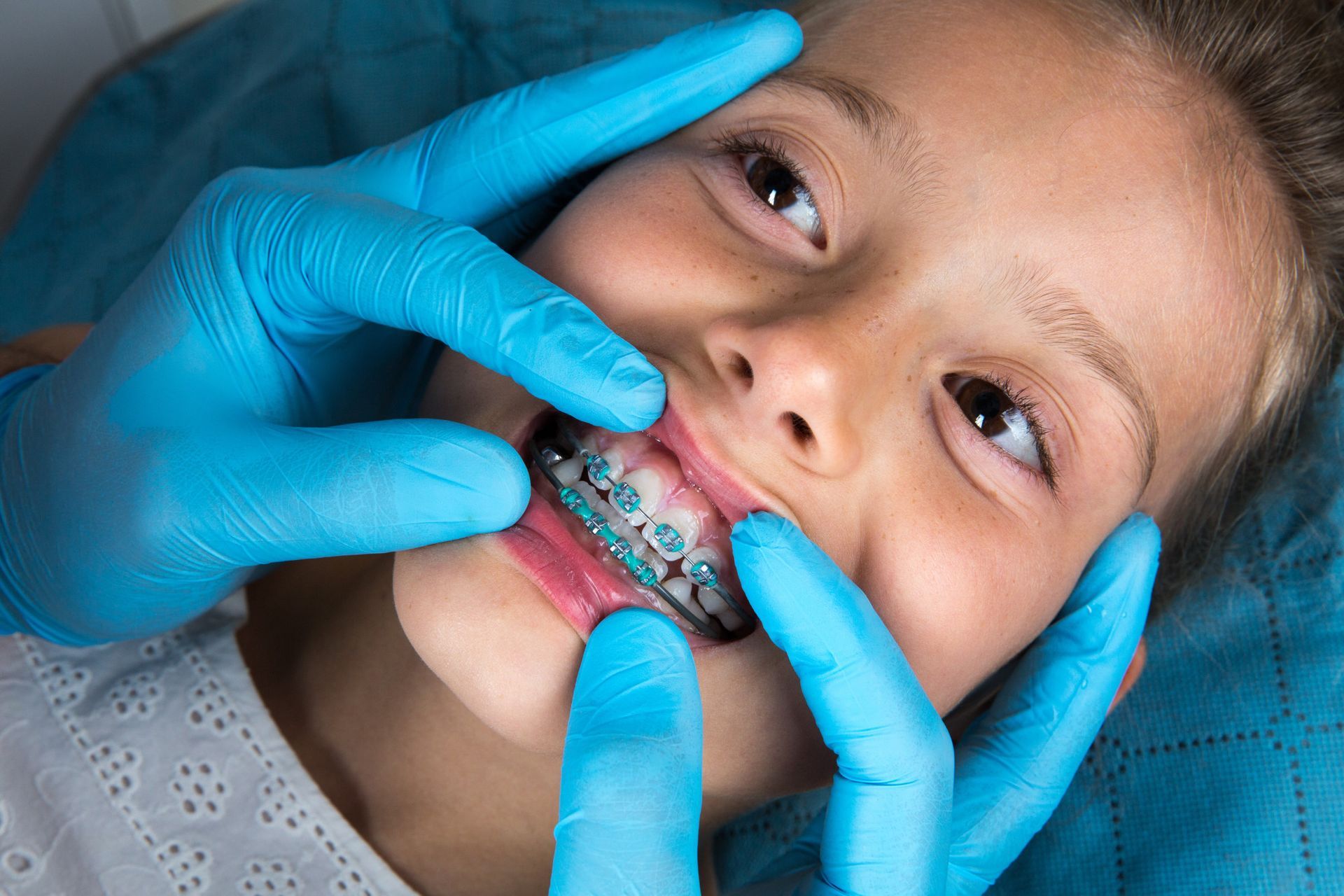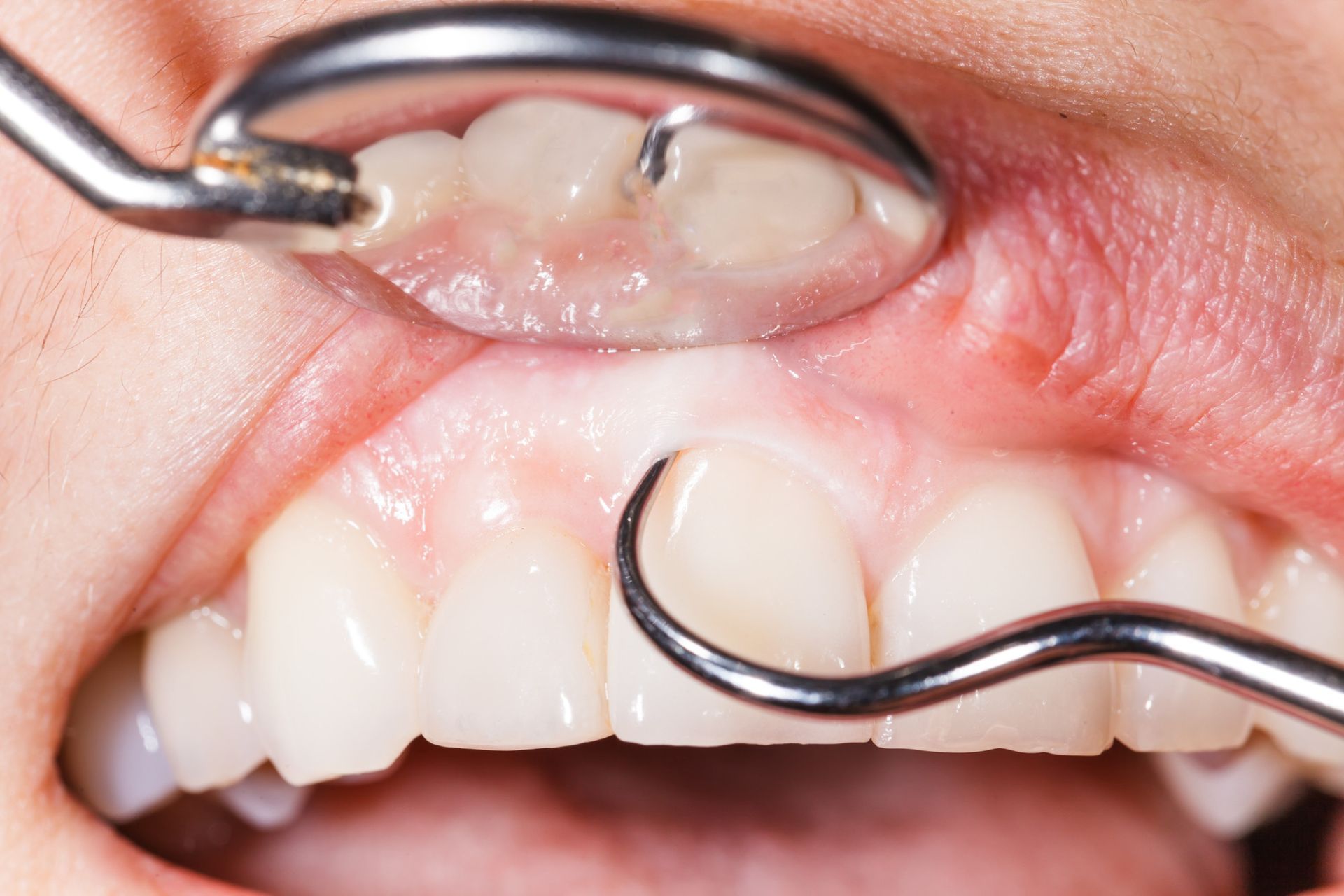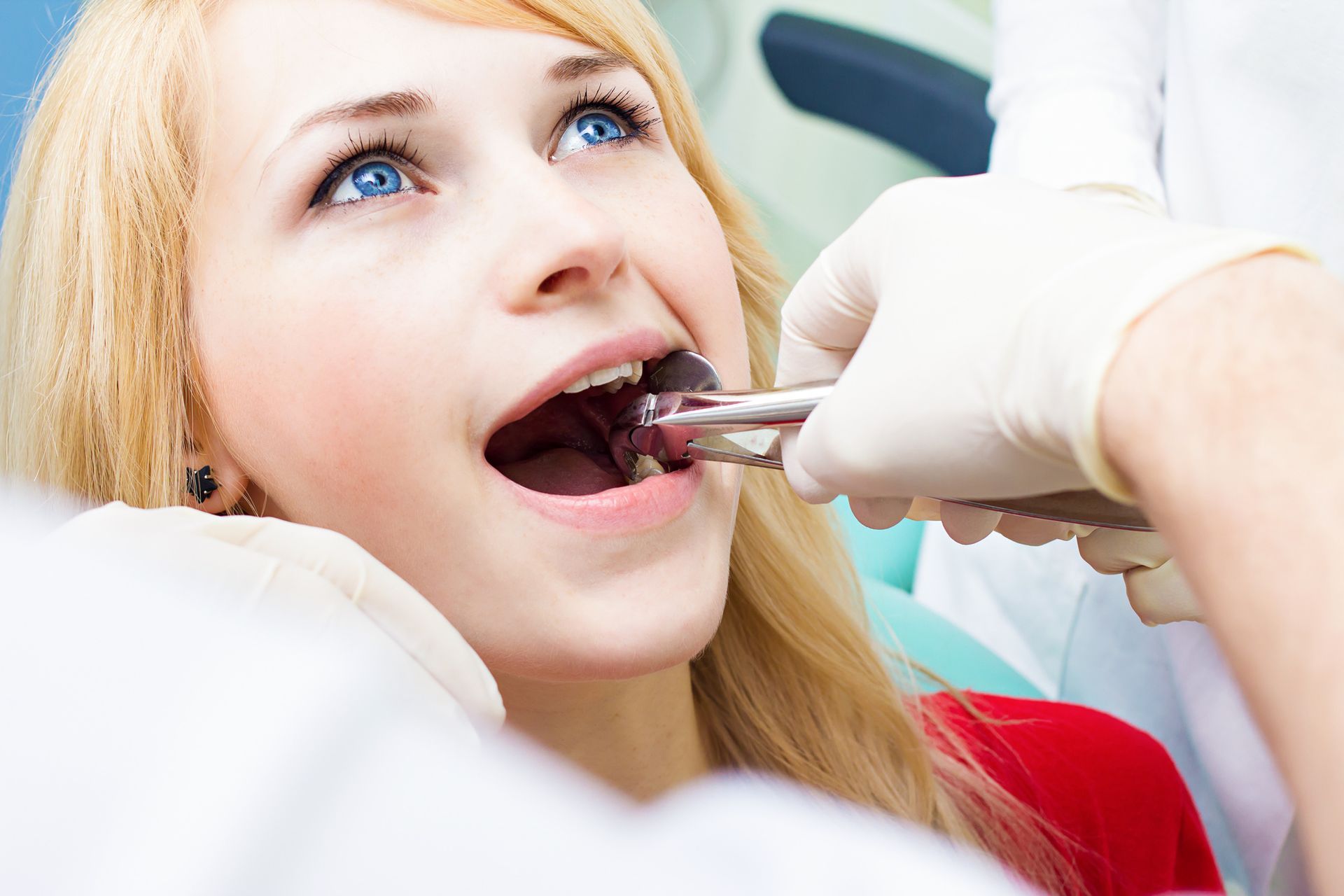Should I Get My Wisdom Teeth Removed? Here Are the Signs You Should!
April 15, 2020
Most of us know that when we get to a certain age, dentists start recommending we get our wisdom teeth taken out. Most of the adults we know have probably had their wisdom teeth removed. But why do we do that, and is it really a necessary procedure?
If you’ve ever wondered, “Should I get my wisdom teeth removed?” you aren’t alone. But while this procedure isn’t strictly necessary in all cases, it’s a good idea most of the time. Read on to discover some signs it’s time to have those teeth removed and what can happen if you ignore those symptoms.
What Are Wisdom Teeth?
Before we dive into the symptoms that show it’s time to get your wisdom teeth removed, let’s talk about what wisdom teeth are in the first place. Wisdom teeth are your third set of molars that usually emerge around your late teens or early twenties. Your first set of molars
starts coming in when you’re six or seven years old, and your second set emerges around age twelve or thirteen.
Your wisdom teeth are located at the far back of your jaw. They earned their name because they erupt when you’re beginning to gain the wisdom of adulthood. Most of us have them removed because the placement of these teeth can cause complications as you get older.
1. Tooth Pain
One of the first things that will tell you your wisdom teeth are starting to cause trouble is tooth pain. This may be pain in the wisdom teeth themselves or in your other sets of molars. You’ll notice a steady, persistent aching in those teeth, and they may become sensitive if you bite down on them.
Wisdom teeth can come in sideways, which can damage the other teeth around them. Over time, you’ll start to feel this damage as the nerves are impacted. You may also get pain from cavities or infections, which we’ll discuss more later.
2. Swelling
You might also notice swelling in your gums around your wisdom teeth. As your wisdom teeth come in, they’re breaking through that tissue. That disruption, as well as the infections that can result, can cause your gums to swell up.
Although there are ways to treat swollen gums, this swelling can cause a problem. As that tissue starts to expand, it creates pockets where food and other debris can get stuck. Over time, that can start to cause, cavities and infections, and it’s hard to reach a toothbrush that far back in your mouth to brush that debris out.
3. Impacted Teeth
In many cases, wisdom teeth may not come in all the way. They may stay partially or entirely hidden under your gums. When they do this, it’s called having impacted teeth, and it can cause a lot of problems.
If your wisdom teeth have partially emerged, they can create those same pockets for cavities and infections that we just discussed. They may also start to develop cysts around them inside your jaw. These cysts can cause all sorts of damage that we’ll discuss more later.
4. Infections
If you develop infections in the gums around your wisdom teeth, you may start to notice it. You may notice pain, redness, oozing, or a bad smell. Trust us when we say you don’t want to have an infection in your mouth.
But aside from being unpleasant, having an infection in your mouth can be very dangerous. If an infection makes its way into your bloodstream, you could go into septic shock, a condition that is often fatal. And given that your mouth has an enormous concentration of blood vessels, a mouth infection is a great opportunity for sepsis to take hold.
5. Cavities
We’ve all heard about the dangers of cavities before. If we don’t brush properly, the enamel of our teeth can begin to rot away, leaving the soft pulp of our teeth vulnerable to damage. If left untreated, the tooth could rot out completely, and we could have to have a root canal
done to fix it.
You probably also know that the best way to prevent cavities is to brush and floss your teeth, but how are you going to brush your wisdom teeth? They’re too far back in your mouth to reach, and oftentimes, they may be hidden under your gums. This makes the likelihood that you get cavities in your wisdom teeth much higher.
6. Shifting Teeth
If you had braces as a teenager, you’ll remember the pain and long years of working to get your teeth aligned. But as your wisdom teeth come in, you may start to notice that alignment shifting. If you wear a retainer, it may be harder to get it in, and if you don’t, you may notice teeth starting to move in front of other teeth.
This is because most people’s jaws aren’t big enough to hold all thirty-two of the teeth we’re born with. Humans have evolved over time, and wisdom teeth are a leftover from when we had larger jaws. As those teeth force their way into your mouth, they can shove your other teeth around, undoing thousands of dollars’ worth of orthodontia.
7. Sensitive Gums
You may notice the gums around your wisdom teeth starting to become more sensitive. You may have to avoid chewing on certain sides of your mouth, and you may want to avoid those areas with a toothbrush. But those swollen gums may be a sign that you haven’t been brushing well enough.
Sensitive gums are another symptom of those mouth infections we were discussing. Gargling with warm salt water can help to bring down the swelling and sensitivity some, but the main problem will still persist. You’re going to get an infection in those teeth, and you can’t fight it off forever.
8. Sinus Pain
You may have noticed lately that you seem to be getting a lot more sinus headaches. You might feel pressure and congestion in your cheeks, forehead, nasal area, and other sinus cavities. And it might surprise you to learn that these issues can be related to your wisdom teeth.
We don’t often think about it, but your top wisdom teeth are pressed right up against your sinus cavities. As those teeth move and the roots develop, they can start to press and rub on your sinuses. This can cause that persistent feeling of pressure, pain, or congestion.
9. Jaw Pain
In addition to the pain in your teeth and sinuses, you may start to notice your jaw hurts more. Part of this may be due to the strain for space and the shifting of your teeth. But a bigger part of it may be due to those cysts
we mentioned earlier that can develop inside your jaw.
When your wisdom teeth are trapped beneath your gums, they may start to develop pockets of infection around them. You may not even know you have these infections at first until they start to eat away into the bone and tissue of your jaw. Then you might start to notice some pain and nerve damage, but by that point, it’s often too late.
10. Bad Odor or Taste
Do people often tell you that you have bad breath even though you brush your teeth every day? Do you carry chewing gum or mints with you everywhere you go to try to control the smell? If you still have your wisdom teeth, your halitosis may not be the result of improper brushing.
One of the major symptoms of infection in any part of your body is a bad smell. This may seem like bad breath since the smell from that infection is coming from so far back in your mouth. You may also notice a persistent bad taste in your mouth, especially as that infection spreads.
Answer, “Should I Get My Wisdom Teeth Removed?”
If you’ve wondered, “Should I get my wisdom teeth removed?” the answer is probably yes. Wisdom tooth removal is a simple procedure that can prevent a lot of complications further down the road. You’ll spend a couple of days on the couch eating ice cream, and then you’ll be free to continue with the rest of your life, worry- and cavity-free.
If you need to talk to someone about getting your wisdom teeth removed, reach out to us at Daas Dentistry. We provide a full range of services, from tooth whitening to crown and bridge treatments and more. Contact us
today to schedule a surgical wisdom tooth extraction and keep your smile beautiful.

Dr. Ehab Daas
Meet your doctor
Dr. Ehab is a passionate dentist with 15 years of dental experience. He received his D.D.S in 1997, and has practiced dentistry for 6 years since then. Immediately after that, Dr. Da'as moved to Paris to get his Orthodontics and Prosthodontic diploma's in which he specialized in fixed bridges and crowns. He graduated from France with remarkable achievements in 2005, and went on to work for 9 years, focusing on difficult orthodontics cases and satisfying his ortho patients. Dr. Ehab moved to Canada in 2014 to continue his career, where he is proud and extremely honoured to provide his patients with the highest quality service.
Learn More

